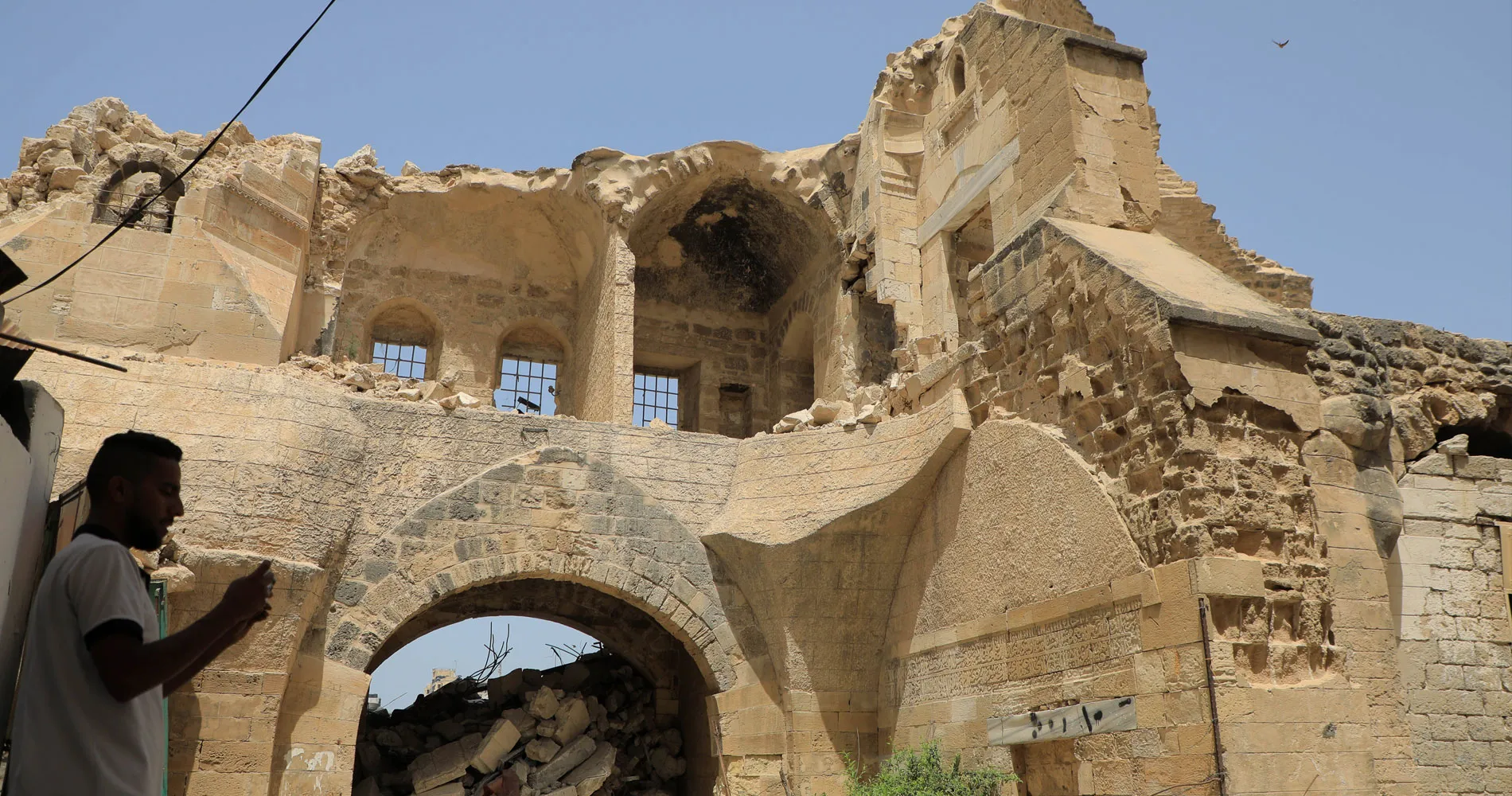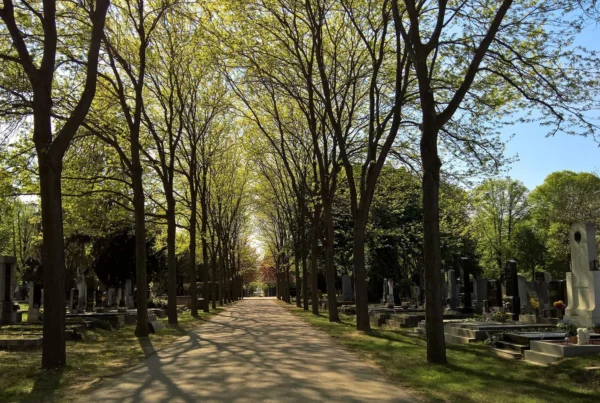The IDF invasion of Gaza is doing irreparable damage to Palestine’s cultural heritage as countless historic sites are now damaged or destroyed from the bombardment by the IDF. While illegal under international law, the destruction has not ceased and threatens to permanently eradicate large chunks of Palestine’s past.
Reed McIntire
4 September 2024
Arabic version | German version
In the 11 months since Israel’s counterattack against Hamas began, over 50 cultural and historic sites have been damaged or destroyed in Gaza by the IDF. The list includes 11 religious sites, 28 historically or aesthetically significant buildings, and numerous active archaeological digs among others. In response, UNESCO has called for combatants to avoid further damage in the name of protecting Palestine’s cultural heritage.
The targeting, damaging, and theft of cultural property is forbidden under the 1954 Hague Convention, which both Israel and the State of Palestine observe. The Convention defines cultural property as “monuments of architecture, art or history, whether religious or secular; archaeological sites; groups of buildings [of] historical or artistic interest; works of art; manuscripts, books and other objects of artistic, historical or archaeological interest; as well as scientific collections and important collections of books or archives or of reproductions of the property defined above.” Libraries and centers which contain large amounts of cultural property are also listed by the Convention.
Israel’s protracted invasion and siege on Gaza destroyed numerous cultural and historic sites within Gaza. Museums, such as the Al Qara Museum, were hosts to priceless artifacts dating back to the Bronze Age which shed light on the region’s rich history. Now, many of these artifacts have been reduced to rubble or are lost in the carnage.
It is not only Muslim history which is suffering from the war as the Palestinian Christian community, one of the oldest in the world, has also been targeted by the IDF. First constructed in the 5th century and the oldest church in Gaza, the Church of St. Porphyrius was used as a refuge for both Muslims and Christians fleeing the violence of the war. Nevertheless, the church was damaged in Israeli bombardment in October 2023, a heavy blow to an already shrinking Christian population.
Countless other locales have been damaged or destroyed by the IDF’s bombardment. The Anthedon Harbor, which was first constructed in 800 BCE and has since seen use by numerous cultures and civilizations, and the Library of Great Omari Mosque, constructed in the 15th Century, have been destroyed. Additionally, the Ottoman fort Qasr al-Basha, which was also eventually used by Napoleon’s troops and later the British Mandate for Palestine, has been damaged as well.
In January 2024, the ICJ, the UN’s top court, accepted South Africa’s case accusing Israel of genocide. The UN’s highest court has ordered Israel to take steps to prevent genocide in Gaza, including ending the killing of Palestinians and ensuring that enough aid reaches the Palestinians in Gaza. In March 2024, the court again ruled that Israel must ensure that basic food supplies reach people in Gaza without delay. In May 2024 the ICJ ordered Israel to immediately halt its offensive in Rafah. Seven countries have formally joined South Africa’s genocide case: Turkey, Colombia, Nicaragua, Spain, Libya, Palestine and Mexico.
In South Africa’s case against Israel, the destruction of Palestinian cultural sites was a major part of the ICJ genocide accusations. According to South Africa’s lawyers, the destruction of Palestinian cultural heritage exemplifies the indiscriminate and inhumane nature of Israel’s campaign. Part of South Africa’s case also included demands for further protections for both Palestinian civilians as well as physical cultural sites and Palestinian cultural identity.
In Raphael Lemkin’s definition of genocide, the basis for our modern understanding, erasure of culture plays a significant role. Lemkin, a Holocaust survivor, included the obliteration of culture, national sentiment, religion, and language as a core element of genocidal ambitions.
Most recently, on 19 July 2024, the ICJ ruled that Israel’s occupation and discriminatory practices in the West Bank territories including East Jerusalem are criminal under international law (https://www.icj-cij.org/sites/default/files/case-related/186/186-20240719-sum-01-00-en.pdf).
In light of how Israel has ignored past decision rendered by the ICJ, it is highly unlikely that this latest ruling will halt Israel’s ongoing destruction of Palestinian life, culture and identity. What is becoming clear is that the highest UN court is increasingly restricting Israel’s freedom to indiscriminately destroy Palestinian heritage sites, bomb mosques and churches and continue killing Palestinian civilians and occupying Palestinian lands.







